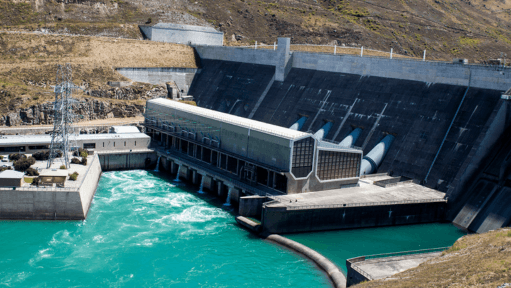
AI Revolutionizing Hydro-Diplomacy: A New Era for Global Water Management
Harnessing Artificial Intelligence to Tackle Water Scarcity, Prevent Conflicts, and Promote Cooperation
Diplomacy, traditionally the art and science of negotiation between nations, is undergoing a profound transformation. Artificial Intelligence (AI) is emerging as a pivotal tool in addressing one of humanity's most critical challenges: hydro-diplomacy. With escalating disputes over shared water resources exacerbated by climate change, AI offers innovative pathways to resolve conflicts and foster cooperation.
The Looming Global Water Crisis
The world’s water crisis is intensifying as climate change disrupts traditional rainfall patterns, prolongs droughts, and depletes freshwater reserves. Shared water resources, such as the Nile Basin, the Mekong River, and the Indus River system, have become flashpoints for regional tensions. Water scarcity affects over 40% of the global population, and this number is expected to rise, making access to freshwater a critical issue for international security and development.
Hydro-diplomacy—the negotiation and management of shared water resources—is essential for maintaining regional stability. However, traditional approaches often fall short due to political tensions, historical grievances, and the complexity of transboundary water systems.
How AI is Transforming Hydro-Diplomacy
AI brings a transformative potential to hydro-diplomacy by offering solutions that are data-driven, impartial, and scalable. Here’s how:
-
Enhanced Data Collection and Analysis
AI-powered systems can monitor water levels, predict shortages, and assess water quality in real time. By integrating satellite imagery, climate models, and historical data, AI can create detailed maps of water resources, enabling informed decision-making.
-
Conflict Prediction and Prevention
AI algorithms can analyse geopolitical, environmental, and social data to predict potential conflicts over water resources. By identifying flashpoints early, nations can take pre-emptive measures to avoid escalation.
-
Smart Water Management
AI systems can optimize water distribution, minimize waste, and ensure equitable access across borders. For instance, machine learning models can predict peak usage times and help allocate resources more efficiently.
-
Mediation and Negotiation Support
AI-powered tools can provide unbiased recommendations for water-sharing agreements. By analyzing treaties, historical usage patterns, and regional needs, AI can suggest fair terms for cooperation.
Legal Implications of AI in Hydro-Diplomacy
The integration of AI into hydro-diplomacy raises important legal and ethical questions that require careful consideration.
-
Legal Frameworks for Transboundary Water Management
Existing international water treaties, such as the Helsinki Rules and the UN Watercourses Convention, provide guidelines for sharing water resources. However, these frameworks were not designed with AI integration in mind. New protocols may be needed to ensure that AI-driven decisions are consistent with international law.
-
Data Ownership and Sovereignty
AI relies on vast amounts of data, often collected from multiple countries. Questions about data ownership, sovereignty, and access must be addressed to prevent disputes over the use of shared information.
-
Accountability and Transparency
Who is accountable for decisions made or influenced by AI? Legal systems must establish clear guidelines to ensure transparency and accountability in AI-powered hydro-diplomacy.
-
Privacy and Security Concerns
The collection of environmental and geopolitical data by AI systems could raise privacy and security concerns. Safeguards must be in place to prevent misuse or unauthorized access to sensitive information.
-
Ethical Considerations
AI systems must be designed to avoid bias and ensure fairness. Ethical frameworks should guide the development and deployment of AI in hydro-diplomacy to protect the interests of all stakeholders, particularly vulnerable populations.
Impact of AI on Water Wars and Treaties
AI has the potential to transform water disputes into opportunities for collaboration by fostering transparency and trust among nations. It can:
-
Strengthen Regional Cooperation: By providing objective data and recommendations, AI can help nations move beyond political mistrust and focus on shared goals.
-
Enable Adaptive Treaties: AI can facilitate the creation of flexible water-sharing agreements that adapt to changing environmental conditions.
-
Promote Sustainable Development: By optimizing water usage, AI can support the UN Sustainable Development Goals, particularly those related to clean water and sanitation (Goal 6).
However, the adoption of AI in hydro-diplomacy requires a collaborative approach involving governments, international organizations, and the private sector. Legal and ethical frameworks must evolve to address the challenges posed by this new technology.